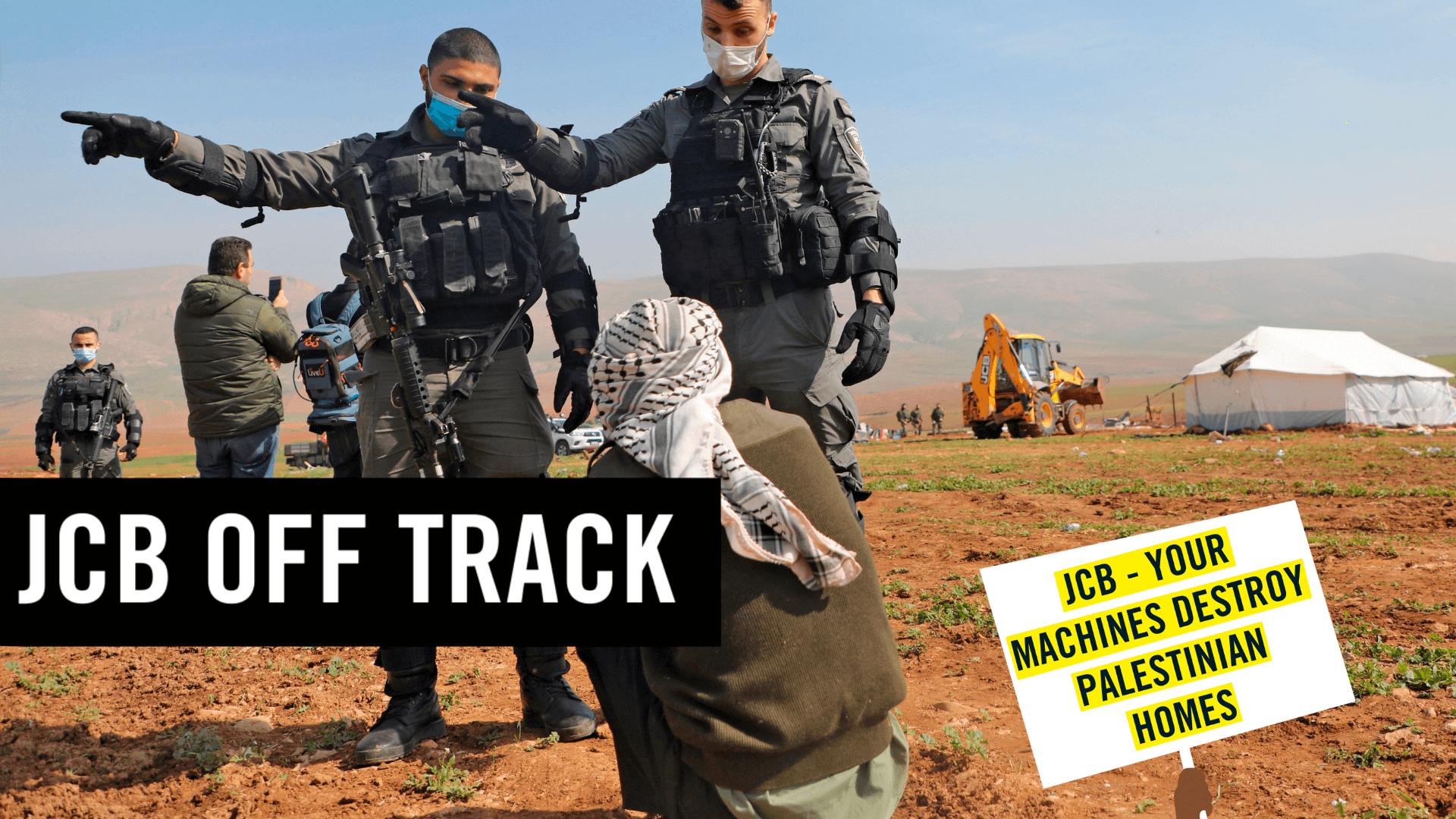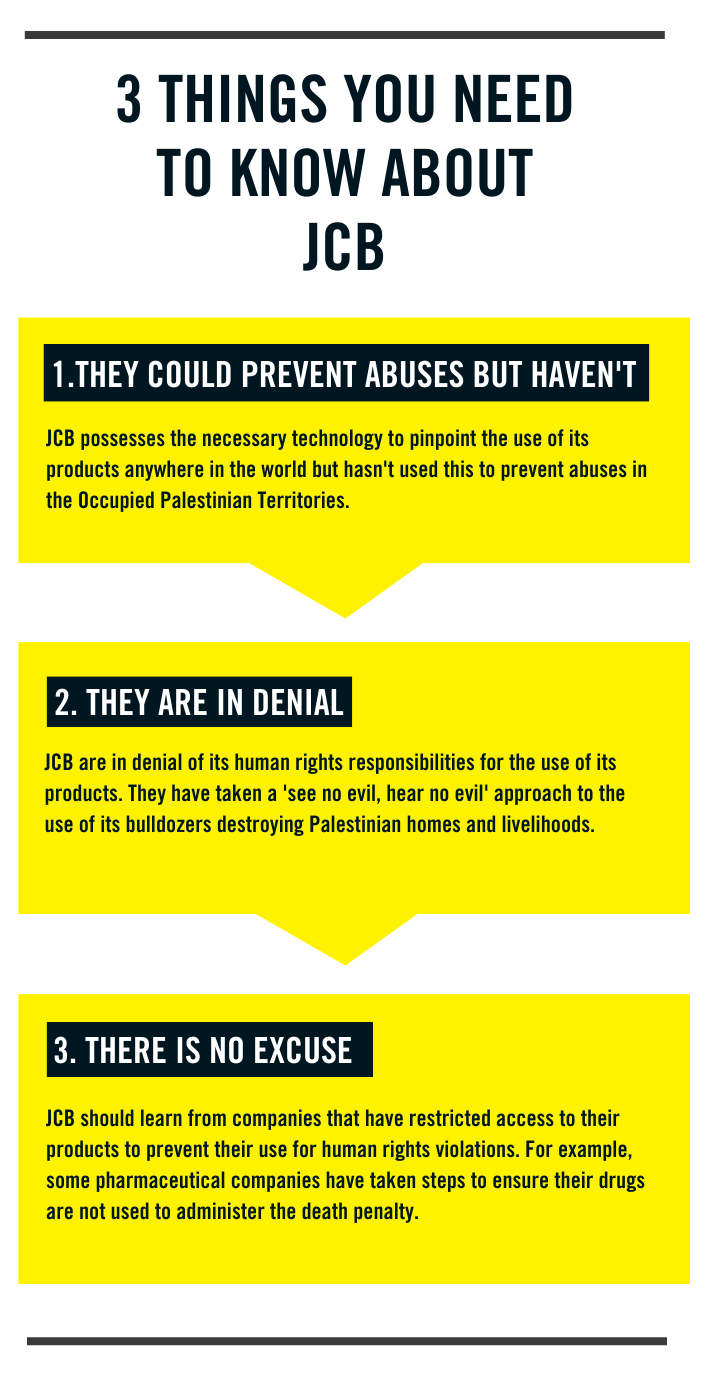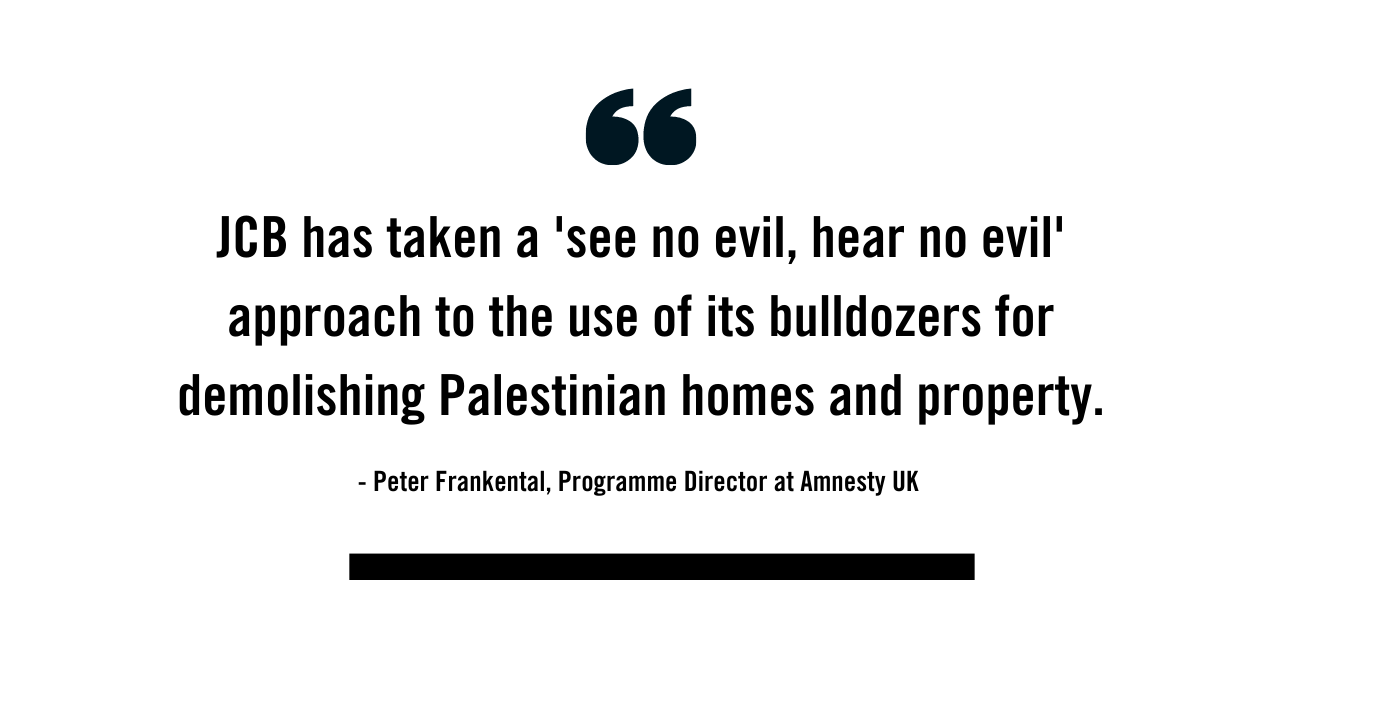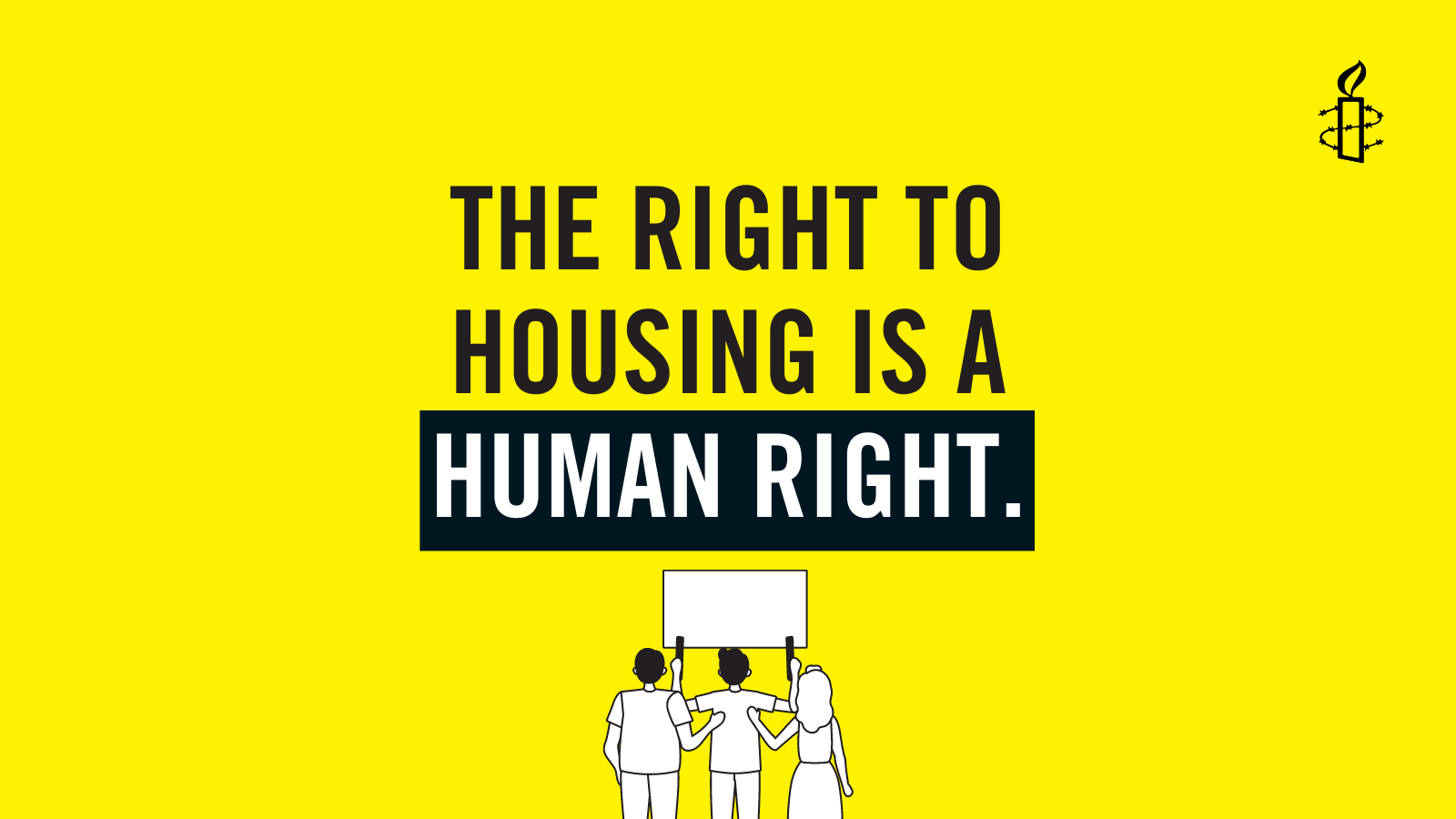 Members of Israeli security forces talk to a man as soldiers demolish Bedouin tents and structures in the Humsa area east of the Palestinian village of Tubas, in the occupied West Bank, on February 8, 2021. Illustration of a placard has been added by Amnesty. (Photo credit Jaafar Ashtiyeh/AFP via Getty Images)
Members of Israeli security forces talk to a man as soldiers demolish Bedouin tents and structures in the Humsa area east of the Palestinian village of Tubas, in the occupied West Bank, on February 8, 2021. Illustration of a placard has been added by Amnesty. (Photo credit Jaafar Ashtiyeh/AFP via Getty Images)
READ AMNESTY'S REPORT ABOUT THE GENOCIDE IN GAZA
For over 50 years Israel has been displacing Palestinians, demolishing their homes, destroying their livelihoods, and seizing their land for Israeli settlers. This is a war crime: a breach of the Geneva Conventions, which prohibit an occupying power from transferring its own civilians into the territory that it occupies. British company JCB is a key supplier of machinery used in this systematic violation of human rights – and has failed to take effective action.
With the help of its Digital Verification Corps based at the University of Essex, Amnesty International’s Crisis Evidence Lab verified more than 100 photos and videos from 56 separate incidents. It reveals the repeated use of JCB equipment in activities resulting in human rights violations in the Occupied Palestinian Territories. Most of the incidents took place between 2011 and 2021.
Alongside the JCB Off Track report, Amnesty has created this open-source digital map showing the scale of demolitions involving JCB equipment.

THE RIGHT TO HOUSING IS A HUMAN RIGHT
The right to housing is a human right, a fundamental component of the right to an adequate standard of living, and central to the enjoyment of other human rights. House demolitions are both a violation of the right to housing and the rights to privacy, family, home, and the peaceful enjoyment of possessions under Article 17(1) of the International Covenant on Civil and Political Rights.
THE CASE OF KHIRBET HUMSAH
The Palestinian community of Khirbet Humsah in the northern Jordan Valley knows this trauma too well. Its residents have endured years of demolitions and attempts of forcible relocation. According to Israeli human rights organisation B’Tselem, on 7 July 2021, JCB machinery was used in the demolition and attempted forcible transfer of the community. Israeli soldiers and Civil Administration staff demolished 13 residential and 17 agricultural structures belonging to the nine Bedouin families who make up the community. This was the sixth incident of demolitions in 2021 in the community using JCB equipment. Residents of Khirbet Humsah fear that army bulldozers may return at any time to destroy their homes.
Below is a slider showing the demolition of Khirbet Humsah.
COMPANIES RESPONSIBILITIES AND HUMAN RIGHTS
- When a company sells its products, knowing of the likelihood they will be used to abuse human rights and doesn't take the steps to prevent this, that company fails to meet its responsibilities under the UN Guiding Principles on Business and Human Rights. This is happening in the Occupied Palestinian Territories.
- JCB stresses their products have beneficial uses. But this does not excuse it from responsibilities for harmful uses. Companies must respect human rights. That means finding out what their products are used for and taking steps to prevent misuse – a process known as due diligence.
- JCB has the technology to stop these abuses from occurring. Its diagnostic system, LiveLink, provides information such as product location and service history amongst others. Despite this, JCB has failed to take effective action.

WHAT IS AMNESTY CALLING FOR
- JCB has the means to do things differently. It could exercise contractual leverage over its sole agent in Israel, Comasco, by embedding human rights conditions into its contracts. Comasco would be required to pass these on to subsequent purchasers of JCB’s products.
- As a UK-based company, JCB’s activities should be regulated by the UK government, so that the company is required to identify and address the human rights impacts of its operations and products. Such mandatory human rights due diligence measures are a necessary step to ensure UK companies do not contribute to human rights violations in the UK or abroad.
- The UK’s legal framework should ensure that any failure by a company to undertake proper human rights due diligence would expose the business to an increased risk of civil liability in the UK and denial of public procurement contracts.
BETWEEN JANUARY AND JULY 2021 ALONE
592
Palestinians displaced
421
Palestinian owned structures seized or demolished by Israeli authorities
320
Palestinian children displaced
